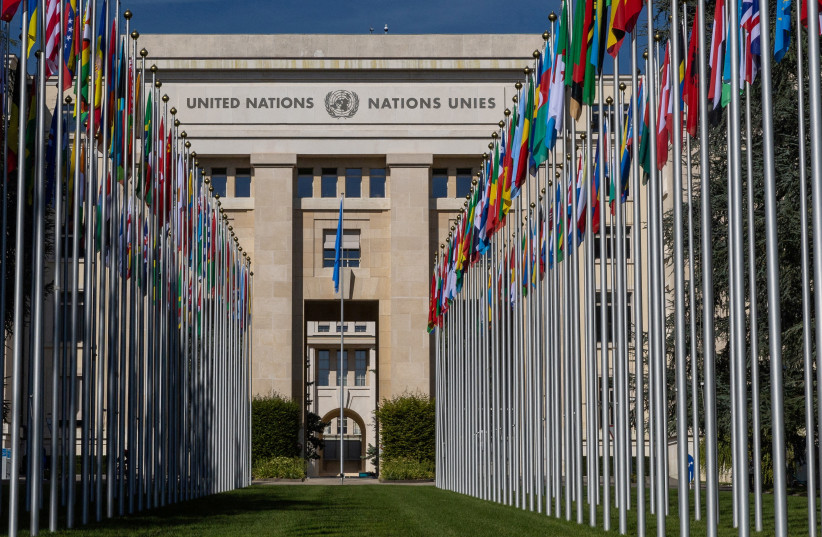Under the weight of the shifting sands of time, the United Nations – the flag-bearer of post-World War II international order – is losing its relevance fast.
The UN was created to anchor the network of multilateral international organizations after World War II to stabilize peace and security, among other objectives. Though it scored some points on consensus building and development, it failed spectacularly on the core issues of maintaining peace and security in the world.
Its bloated bureaucracy, unrealistic ideals, and inability to navigate the complexities of regional and global geopolitics today make this body a silent bystander in a world driven by nationalism, populism, and competing geopolitical interests.
October 7 massacre shows the UN's irrelevance
The handling of the October 7 Hamas terrorist attack on Israel and the retaliation on Hamas in Gaza is one of the most glaring examples of the UN’s irrelevance and inability to see through an issue with clarity and moral perspective.

First, the Security Council, its apex forum on peace and security decision-making, failed to condemn Hamas terrorism despite having clear guidelines and protocols against terrorism. And then the sudden silence turned into cacophony when Israel retaliated and there were all-round calls for a ceasefire.
Here, the UN member states, including its two permanent members, were looking at the issue as “for” or “against” Israel and the West and not as an issue of terrorism. That makes the UN irrelevant.
In its early decades, it was possible to build a consensus around something at the United Nations Security Council (UNSC) through back-room dealings and compromises. Not anymore.
Achieving consensus for war and peace harder than ever
Because the lines between the US-led Western coalition and the aggrieved litany of authoritarian regimes led by China, Russia, and Iran, including the stranglehold of the Organisation of Islamic Cooperation (OIC), and many more, geo-political aspirations are getting deeper and wider.
Now it is harder than ever to build a consensus for war and peace at the Security Council.
DURING THE last few decades, as the gulf between democracies and authoritarian regimes widened, the world has witnessed a surge in power, influence, and leverage of dictatorial regimes on other UN organizations like the United Nations Human Rights Council (UNHRC), WHO, and WTO.
The UNHCR, an important platform to discuss the human rights abuses in dictatorial states, has Iran, Saudi Arabia, China, and Venezuela calling the shots and setting agendas.
Israel's grievances against UNRWA
Israel, an important member state of Middle East, has some genuine grievances against the United Nations Relief and Works Agency (UNRWA), a UN body that looks after Palestinian refugees, but those complaints are never heard or addressed.
More stunning and glaring is the complete silence of UN Women, the flag-bearer organization championing women’s rights and empowerment issues, on the reported rapes of Israeli women during and after Hamas’s October 7 terrorist attacks. There was total and complete silence by UN women and its affiliated bodies on the issue, despite multiple media reports.
Hamas terrorists not only killed civilians on that fateful day but they also stormed the kibbutzim and used rape as a tool of terror. Several women’s bodies were found carrying evidence that they had been raped before being killed.
Similarly, the conduct of WHO during COVID-19 and its outright impotence to compel China to share COVID data and its history were stunning, to say the least.
So, now moving on to the next question: What is the solution? Doing away with the UN altogether? Reform it? Or replace it with another more credible and effective body? The answer is probably all of the above.
In its present form and shape, the UN has failed to live up to its charter goals and ideals. The reason for its ineffectiveness lies in the structure of Security Council, where two permanent member states have their own agendas, which are often incompatible with the free world.
The world is already divided into democracies, or aspiring democracies, and dictatorships, or aspiring dictatorships. So, this makes the UNSC and the UN General Assembly (UNGA) incapable of building a consensus on any serious issue. This doesn’t look like a temporary or passing phase.
It looks like these two distinct blocs will continue to vie for power and influence in the foreseeable future.
Reform? This needs consensus at the UNSC and the UNGA. That is not forthcoming, which would make any attempt at a meaningful reform a non-starter.
The solution lies in accepting the reality that the world is divided both vertically and horizontally, and it needs a new bloc or representative body of countries that are democratic or believe in democracy, free markets, and civil liberties. These could be regional groupings or a universal collaborative platform of friends and like-minded nations.
The goals and aspirations these new instruments pursue could include peace and security, free trade, and innovative technologies.
Times – and the world – have moved on. It’s time to let the decadent institutions die.
Raheel Raza is a board member of the Council of Muslims Against Antisemitism. Mohammed Rizwan is a former Pakistani journalist who has worked with numerous international media outlets, including The Washington Post, The Telegraph, and The Khaleej Times.
